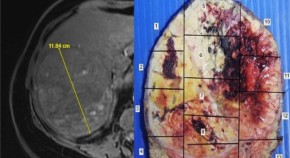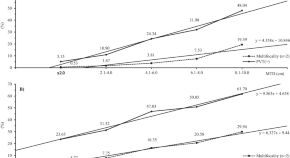
Collection
Clinical and basic research on hepatocellular carcinoma in Turkey
- Submission status
- Closed
This special edition of invited papers is designed to show the depth and breadth of research work on hepatocellular carcinoma (HCC) or liver cancer ongoing in Turkey, the co-equal (with Iran) second most populous country, after Egypt, the most populous. Interestingly, the etiology of HCC is different in different countries of the region, being predominantly Hepatitis C-based in Egypt, but Hepatitis B-based in Turkey (Liver Cancer in the Middle East. Ed. Carr BI. Springer Press 2021). The issue is only a sampling of the richness of interest in HCC in Turkey and is not intended to be comprehensive.
Papers are included on HCC signaling pathways, new biomarkers, programmed cell death (autophagy), new drugs and potential targets, 3-dimensional tissue culture and the use of zebrafish as disease models, ATAD2 in gene control, as well as reviews of the microbiome, microbiota and an overview of the tumor microenvironment. Clinical approaches include the impact of Hepatitis D on Hepatitis B-mediated HCC, surveillance of patients at risk of HCC development as a key to earlier diagnosis and thus more effective therapy, tapering of post liver transplant immunosuppressive therapy as a means of control of recurrent HCC, tumor aggressiveness factors, a new clinical model for predicting development of early HCC and an explanation of primary, secondary and tertiary prevention of Hepatitis B infection and the consequences for decreasing HCC incidence and biology.
Other special issues may highlight work on liver and other GI cancers in different selected countries or regions. It is hoped that this special issue may also encourage submissions on both clinical and basic science aspects of GI cancers from a diversity of countries.
Articles (7 in this collection)
-

-
Hepatocellular Carcinoma Tumor Microenvironment and Its Implications in Terms of Anti-tumor Immunity: Future Perspectives for New Therapeutics
Authors (first, second and last of 5)
- Basri Satilmis
- Tevfik Tolga Sahin
- Sezai Yilmaz
- Content type: Review Article
- Published: 08 October 2021
- Pages: 1198 - 1205
-
Relationships Between Indices of Tumor Aggressiveness in Hepatocellular Carcinoma
Authors (first, second and last of 4)
- Brian I. Carr
- Vito Guerra
- Seai Yilmaz
- Content type: Invited Paper
- Published: 06 October 2021
- Pages: 1340 - 1349

-
The Importance of the Immunosuppressive Regime on Hepatocellular Carcinoma Recurrence After Liver Transplantation
Authors
- Sezai Yilmaz
- Volkan Ince
- Content type: Invited Paper
- Published: 06 October 2021
- Pages: 1350 - 1355
-
Hepatitis B/D-Related Hepatocellular Carcinoma. A Clinical Literature Review
Authors (first, second and last of 4)
- A. Baskiran
- A. Atay
- S. Akbulut
- Content type: Review Article
- Published: 06 October 2021
- Pages: 1192 - 1197
-
Systematic Analysis of Cytostatic TGF-Beta Response in Mesenchymal-Like Hepatocellular Carcinoma Cell Lines
Authors (first, second and last of 4)
- Medine Zeynep Gungor
- Merve Uysal
- Serif Senturk
- Content type: Invited Paper
- Published: 31 August 2021
- Pages: 1320 - 1335

-
State-of-the-art Hepatocellular Carcinoma Biomarker Detection by Biosensor Technology—a Review
Authors
- Zihni Onur Uygun
- Content type: Invited Reviews
- Published: 04 August 2021
- Pages: 1081 - 1085

